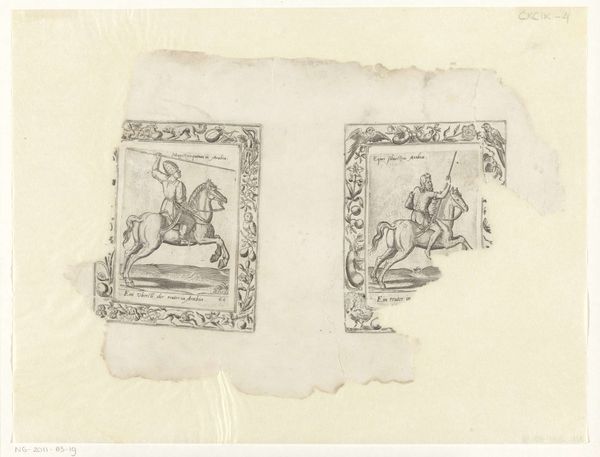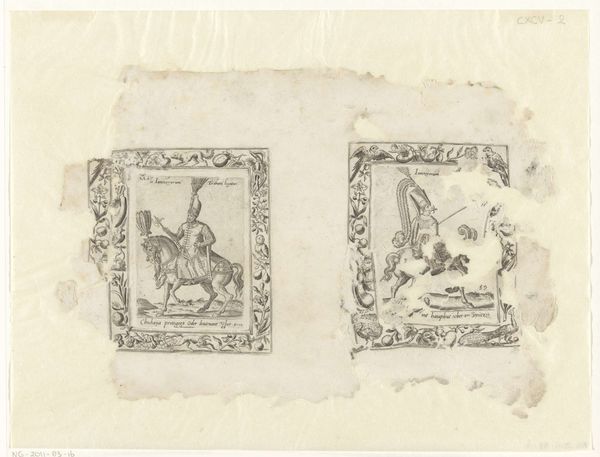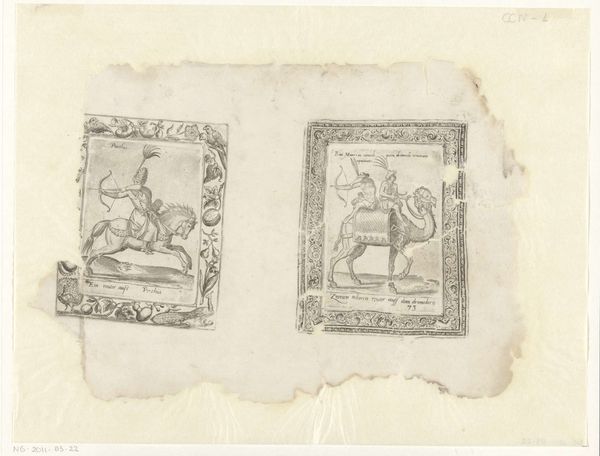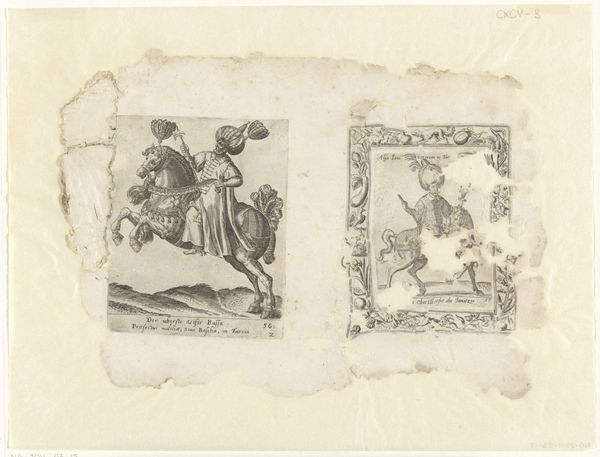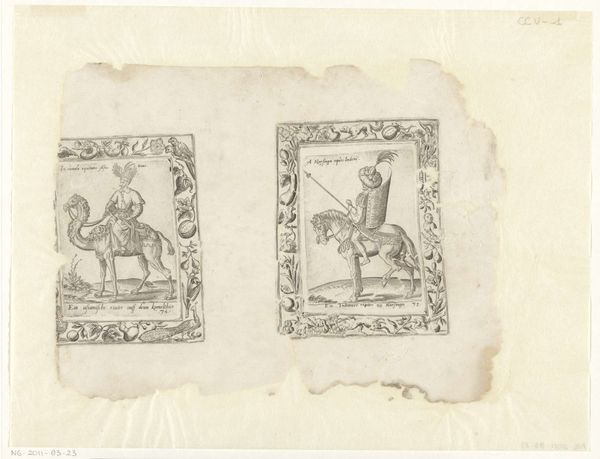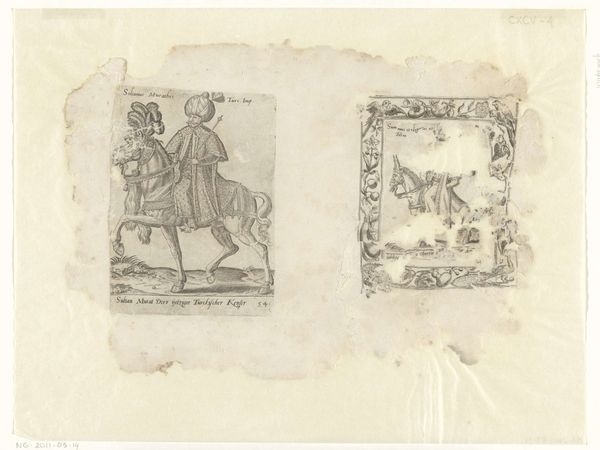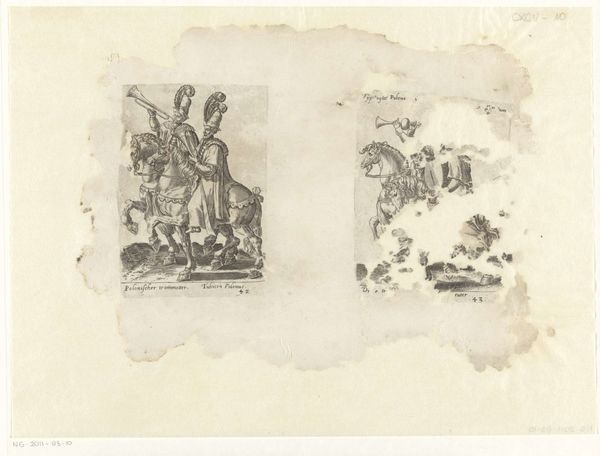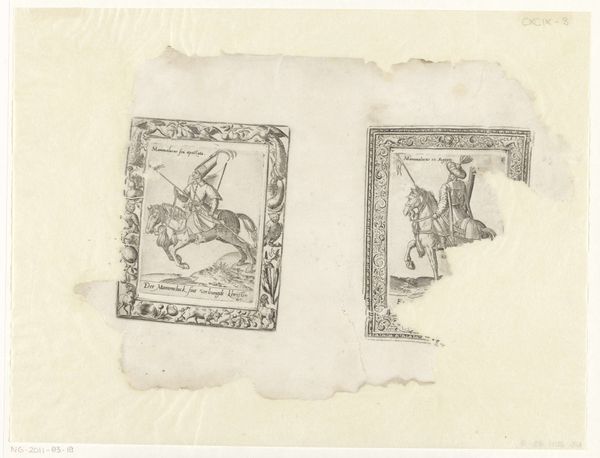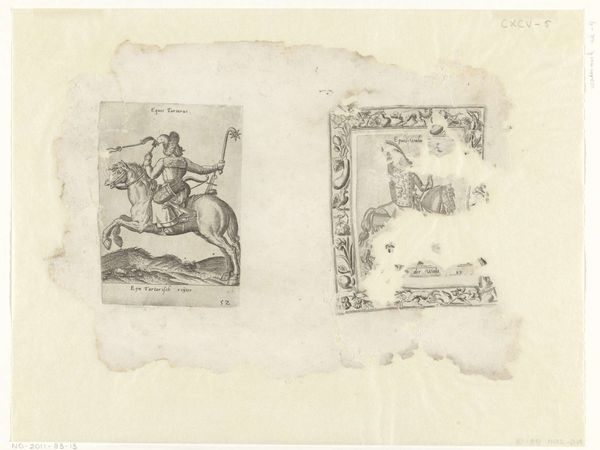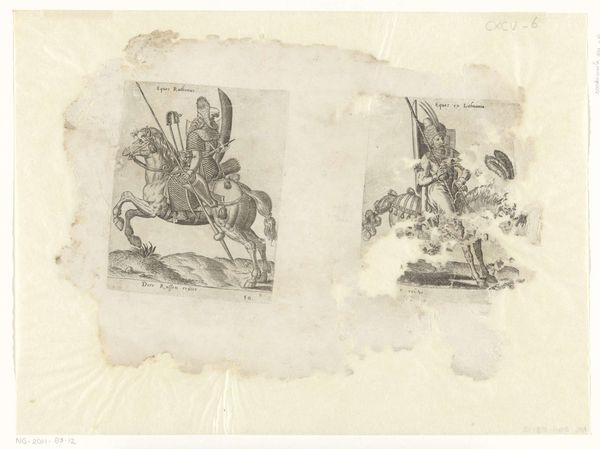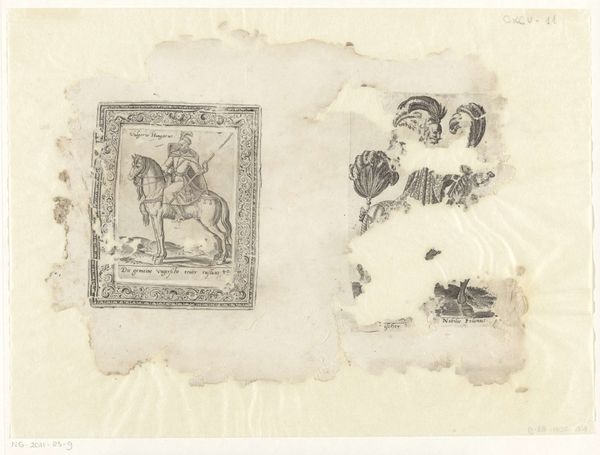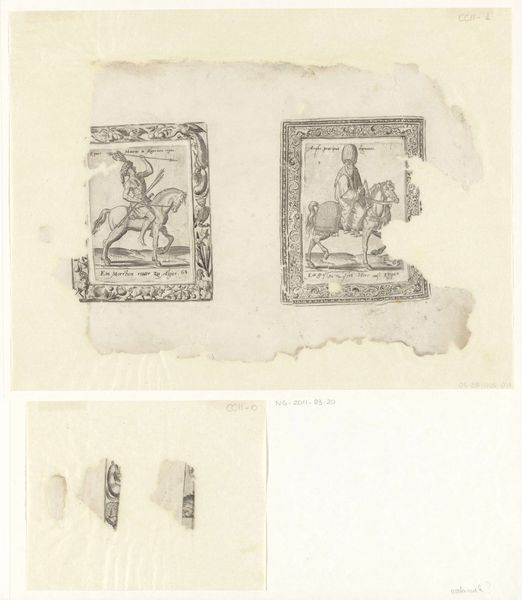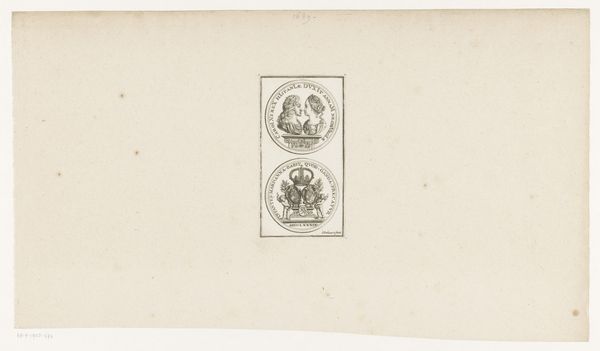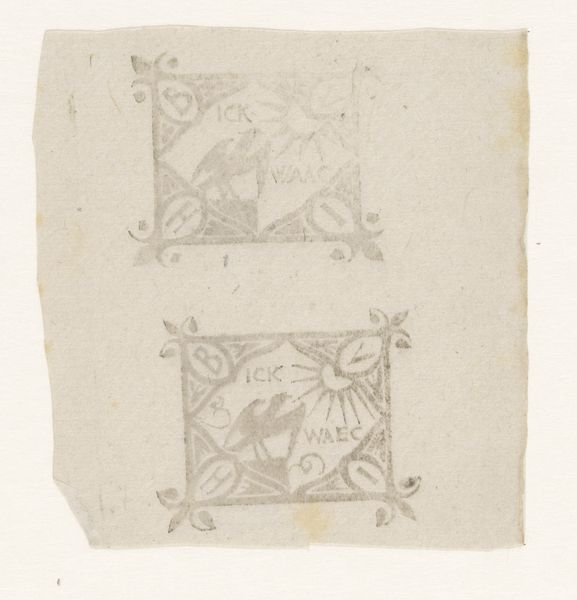
print, engraving
#
portrait
# print
#
figuration
#
genre-painting
#
northern-renaissance
#
engraving
Dimensions: height 234 mm, width 345 mm
Copyright: Rijks Museum: Open Domain
Abraham de Bruyn made these engravings of an Arabian nobleman with his wife and a Scythian rider sometime before 1587. These images, held at the Rijksmuseum, offer a window into 16th-century European perceptions of different cultures. The images are presented within ornate frames, which were a common practice in European art to elevate the subject matter. These framed images tell us something about the institutional history of art and image making in Europe. The figures are depicted on horseback, suggesting a position of power and status, but also perhaps reflecting European stereotypes about non-European cultures. The clothing and adornments are detailed, indicating an attempt to represent the cultural specificity of these figures, yet they also reflect the limited knowledge and biases of the time. Understanding these images requires us to delve into historical texts, travelogues, and costume books. Through such research, we can better understand the social and institutional contexts in which art is created and interpreted.
Comments
No comments
Be the first to comment and join the conversation on the ultimate creative platform.
